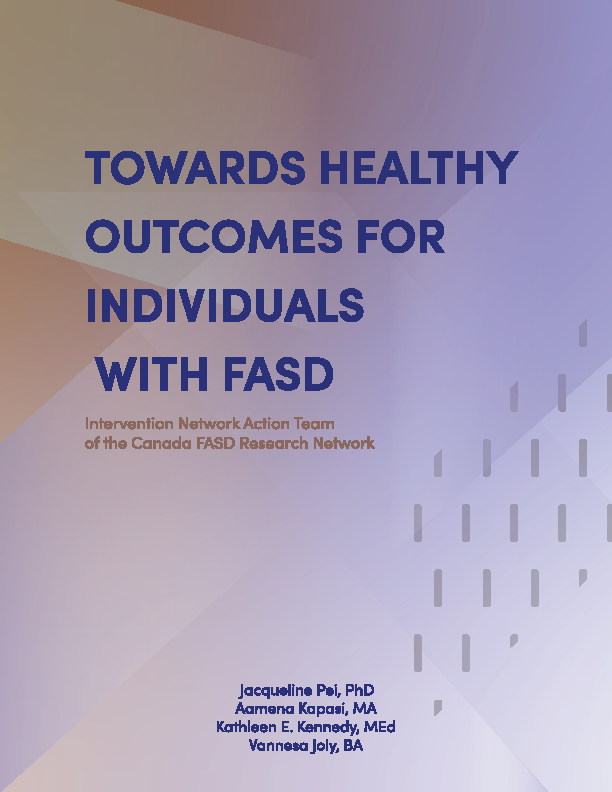Towards Healthy Outcomes for Individuals with FASD
All human beings are motivated to experience purpose and success. It is not enough to ‘get by’ in life, rather we must feel as though we are achieving expectations set by us and others. People of all abilities need to feel as though they have a purpose and that they are able to meaningfully contribute to society.
However, the pathway to these experiences may be unique and not necessarily in line with systematic approaches to nurturing success. Susan Hampshire stated, “It is a lonely existence to be a child with a disability which no-one can see or understand, you exasperate your teachers, you disappoint your parents, and worst of all you know that you are not just stupid.”
With complex populations, such as those with Fetal Alcohol Spectrum Disorder (FASD), wherein the nature of the lifelong disability may be different for each individual, finding this pathway can be even more difficult.
Moreover, a lack of understanding may present an even greater challenge. But, with a shared roadmap we might gradually work towards improving our approach to finding that pathway and supporting forward movement that is the right fit for each individual.
By implementing interventions and/or supports we create opportunities for targeted skill growth and development, while also shifting environmental supports and expectations in order to optimize opportunity. The goal is to promote well-being and generate opportunities for meaningful success. Broadly speaking, we use the language of “intervention approaches” to capture both the targeted and supported aspects of intervention. In our quest for healthy outcomes, researchers, community members, and families have reminded us that meaningful outcomes arise from meaningful understandings.
To help support intervention approaches across the lifespan, the Healthy Outcomes model has been developed to help support intervention approaches across the lifespan. This model embodies this perspective, and provides us with a roadmap that can help to think carefully and proactively about healthy pathways.
The model is founded on core beliefs that reflect integration of the research with wisdom from communities and caregivers, as well as the lived experiences of those with FASD.

